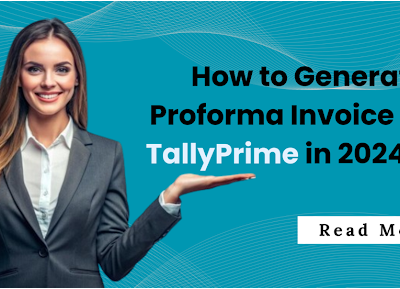
Campaigns, whether for political, nonprofit, or business purposes, require meticulous planning and strategic foresight to ensure success. One critical aspect often overlooked is pre-campaign counseling. This crucial phase sets the stage for a well-structured and effective campaign. By focusing on pre-campaign counseling, you can build a solid foundation that maximizes your chances of achieving your campaign goals. In this article, we’ll explore the importance of pre-campaign counseling and offer practical strategies to ensure your campaign is set up for success.
Understanding Pre-Campaign Counseling
Pre-campaign counseling involves a series of strategic consultations and planning sessions conducted before the actual campaign launch. This phase helps to clarify objectives, identify key stakeholders, assess resources, and develop a comprehensive strategy. The goal is to ensure that every aspect of the campaign is thoroughly thought out and that potential challenges are addressed before they arise.
Why Pre-Campaign Counseling Matters
Clarifies Objectives and Goals
Effective campaigns start with clear objectives. Pre-campaign counseling helps in defining these objectives precisely. Whether aiming to increase brand awareness, drive fundraising, or influence voter behavior, having a well-defined goal ensures that all campaign activities are aligned towards achieving it. This clarity prevents mission drift and keeps the campaign focused.
Identifies Key Stakeholders
Knowing who your stakeholders are—be it supporters, influencers, or community leaders—is crucial for a successful campaign. Pre-campaign counseling involves mapping out these stakeholders and understanding their interests and influence. This helps in tailoring your messaging and engagement strategies to effectively reach and persuade these groups.
Assesses Resources and Budget
Effective campaigns require a strategic allocation of resources, including time, money, and human capital. During pre-campaign counseling, you will evaluate your available resources and budget, identifying any gaps that need to be addressed. This ensures that you have the necessary assets to execute your campaign plan efficiently.
Develops a Comprehensive Strategy
A well-thought-out strategy is essential for guiding campaign activities. Pre-campaign counseling helps in developing this strategy by analyzing market trends, audience behavior, and competitive landscape. This strategic blueprint serves as a roadmap for the campaign, outlining tactics, timelines, and key performance indicators (KPIs).
Anticipates Challenges and Risks
Every campaign faces potential challenges and risks. Pre-campaign counseling involves identifying these risks and developing contingency plans. This proactive approach helps in mitigating potential issues before they impact the campaign, ensuring smoother execution.
Key Components of Pre-Campaign Counseling
Objective Setting and Alignment
Begin by clearly defining the objectives of your campaign. What do you hope to achieve? Are you focusing on increasing engagement, raising funds, or driving awareness? Ensure that your objectives are specific, measurable, achievable, relevant, and time-bound (SMART). Align these objectives with the overall mission of your organization or cause.
Stakeholder Analysis and Engagement
Identify and analyze key stakeholders who will be instrumental in the success of your campaign. This includes understanding their interests, concerns, and potential contributions. Develop a stakeholder engagement plan to build relationships, seek support, and leverage their influence effectively.
Resource Allocation and Budget Planning
Conduct a thorough assessment of your available resources, including financial, human, and technological assets. Create a detailed budget that outlines expected expenses and allocations. Ensure that your resource allocation aligns with your campaign strategy and objectives.
Strategic Planning and Messaging
Develop a comprehensive campaign strategy that outlines key tactics, timelines, and milestones. Craft compelling messaging that resonates with your target audience and aligns with your objectives. Ensure that your messaging is consistent across all channels and platforms.
Risk Management and Contingency Planning
Identify potential risks and challenges that could impact your campaign. Develop contingency plans to address these risks, including alternative strategies and solutions. Regularly review and update your risk management plan to adapt to changing circumstances.
Evaluation and Measurement
Define key performance indicators (KPIs) to measure the success of your campaign. Establish metrics for tracking progress and evaluating the effectiveness of your strategies. Regularly review these metrics and make necessary adjustments to stay on track.
Practical Tips for Effective Pre-Campaign Counseling
Engage Experts and Consultants
Consider involving experts or consultants with experience in campaign planning and execution. Their insights and expertise can provide valuable perspectives and help in refining your strategy.
Foster Collaboration and Communication
Encourage open communication and collaboration among your team members and stakeholders. Regular meetings and updates ensure that everyone is aligned and informed about the campaign’s progress.
Leverage Data and Insights
Use data and insights to inform your planning and decision-making. Analyze past campaign performance, market trends, and audience behavior to guide your strategy.
Be Flexible and Adaptable
Stay flexible and be prepared to adapt your strategy based on feedback and changing circumstances. Pre-campaign counseling is not a one-time process but an ongoing effort to refine and improve your approach.
Document and Review
Document all aspects of your pre-campaign counseling process, including strategies, plans, and decisions. Regularly review and update these documents to ensure that they remain relevant and effective.
Conclusion
Pre-campaign counseling is a crucial step in building a strong foundation for any campaign. By investing time and effort into this phase, you can clarify objectives, identify stakeholders, assess resources, and develop a comprehensive strategy. This proactive approach helps in anticipating challenges, mitigating risks, and setting the stage for a successful campaign. Remember that pre-campaign counseling is not a one-time task but an ongoing process that requires continuous evaluation and adaptation. With a solid pre-campaign plan in place, you’ll be well-positioned to achieve your campaign goals and make a meaningful impact.







